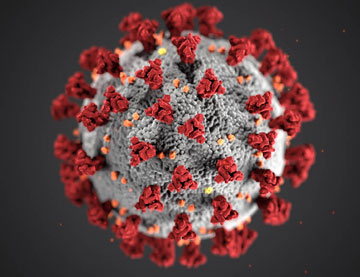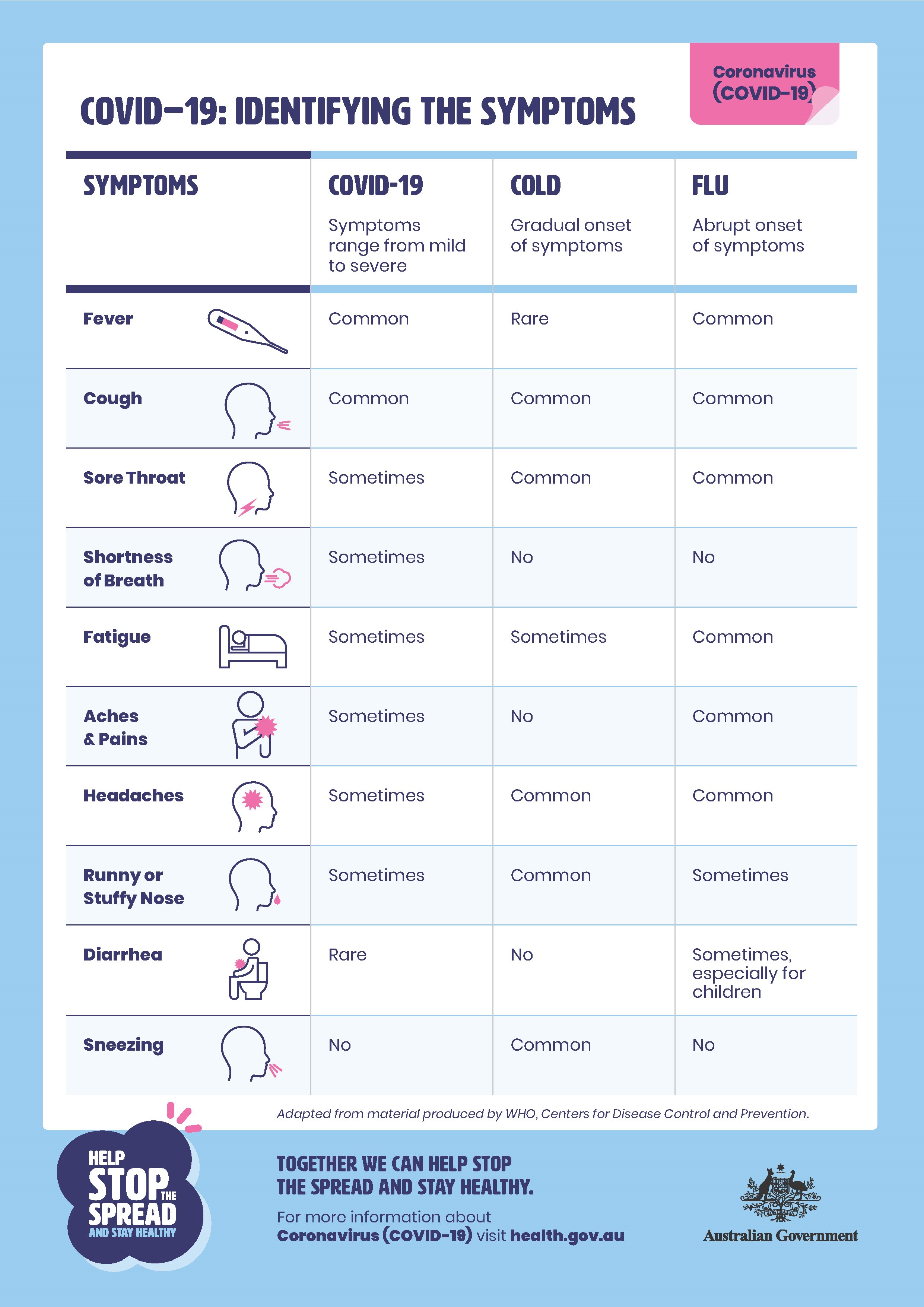Banner Image

Covid 19 and Other Infectious diseases
We have lots of organisms (or ‘living things’) on our bodies. That is normal and natural, and most of them are harmless – or even helpful.
But sometimes, under certain conditions, organisms can cause disease.
An infectious disease is a disorder caused by organisms including bacteria, viruses, fungi or parasites.
Infectious diseases can be passed from person to person, so it is important you maintain good person hygiene to help prevent the spread.
What are some common infectious diseases?
Some common infectious diseases include coughs, colds, influenza (flu), bronchitis, diarrhoea, conjunctivitis, measles and mumps.
Coronavirus COVID-19 is also an infectious disease we are hearing a lot about at the moment.
What is Coronavirus COVID-19?
COVID-19 is a respiratory illness caused by a new virus we are still learning about. You can’t see this virus with your eyes, only under a microscope. Symptoms of COVID-19 include fever, coughing, sore throat and shortness of breath.
The virus that causes COVID-19 spreads easily from person to person, and infects the breathing system, the nose, throat and lungs. It is passed from person to person through tiny droplets when people cough or sneeze. These droplets can be breathed in by others, which is why it is important not to stand or sit too closely to others.
The more space between you and others, the harder it is for the virus to spread. This is called social distancing. You should stay at least 1.5 metres away from other people when you are at school, in the supermarkets or out walking. You don’t need to do this at home with your parents or brothers or sisters, only when you are outside the home, or with others (including your extended family or family friends).
The droplets can also land on surfaces, such as mobile phones, door handles, tables and hands. If we touch things and then touch our eyes, mouth or nose, we risk the virus getting inside of us.
Everyone must do the following things to slow the spread of COVID-19 and protect those who are most at risk:
- Wash your hands often – and well
- Cover your coughs or sneezes (by coughing or sneezing into your elbow)
- Put tissues straight into the bin
- Avoid shaking hands or touching others
- Avoid touching your eyes, nose and mouth
- Clean regularly used objects and surfaces
- Keep fresh air circulating through your house
- Stay home at much as possible
- Keep your distance from others (1.5 metres minimum).
How do I know if I have COVID-19 – or just a cold or flu?
The table below will help you identify any symptoms you may be feeling.

Why is it so important to wash my hands?
The best way to prevent the transmission of a whole range of infectious diseases is to wash your hands regularly – and really well!
Hand washing works so well because it dilutes and flushes away germs, dirt and other contaminated matter that otherwise may be transferred to your eyes or mouth, or be absorbed into your skin.
To avoid disease, it is essential to wash your hands:
- Before handling food
- Before eating
- Each and every time you go to the toilet
- After playing with a pet
- After changing a nappy or helping a small child in the toilet
- After cleaning up blood, faeces or vomit
- After wiping your own nose or that of a young child
- After taking rubbish to the bin.
What’s the best way to wash my hands to avoid disease?
The most effective method of washing your hands is to:
- Rub your hands vigorously as you wash them, counting to 20
- Use soap with water
- Wash your hands all over, including the backs of your hands, wrists, between your fingers and under your fingernails
- Rinse well to wash the soap off
- Turn off the tap using a single-use towel, wipe your hands and discard the towel
- Try to prevent cracked skin, as this may allow germs to enter the body – if possible rub skin lotion into the hands thoroughly after washing
- If you’re helping with dishes or other house cleaning, use gloves.
Can germs spread in other ways?
Organisms and bacteria can grow on other surfaces too - even the soap left wet on the basin! If you use a soap bar, keep it on a soap holder that allows it to dry off between use. Or, use liquid soap. Towels can also transmit bacteria. Disposable towels or electric hand dryers are the best for controlling germs. It is important to ensure that cloth towels are washed regularly and are hung so they can dry easily.
Hand sanitiser can be used when you are out and about and don’t have access to hand washing facilities.
Immunisation
What is immunisation?
Immunisation protects people against harmful infections before they come into contact with them.
Immunisation uses the body’s natural defences to build resistance to specific infections and helps young people (and adults) stay healthy by preventing serious infections.
The routine childhood immunisation program in Australia currently provides protection against 13 diseases (but not Coronavirus COVID-19).
